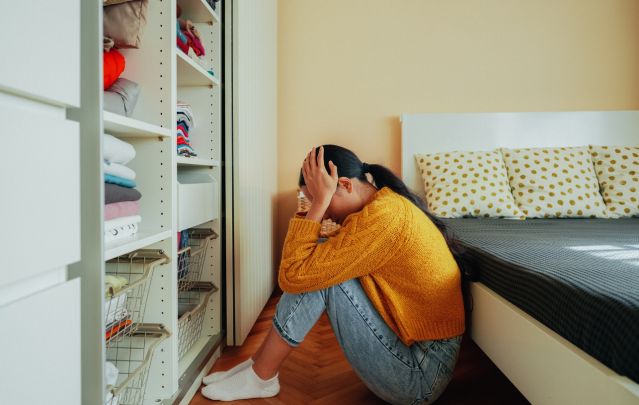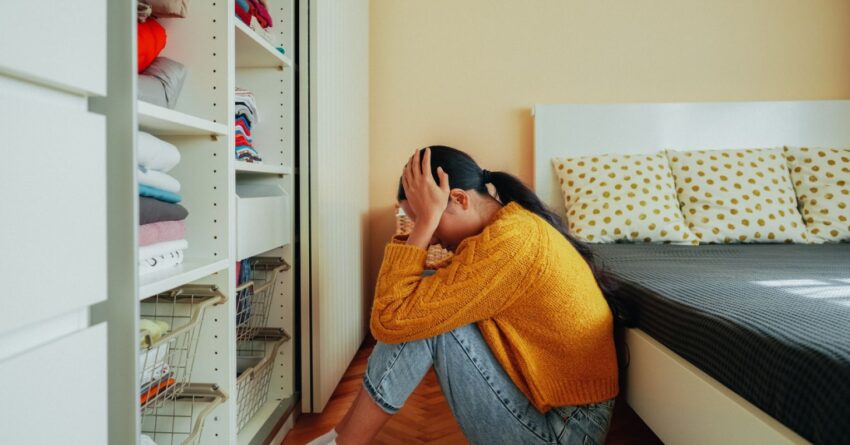
Source: martin_dm / iStock
It’s Sunday afternoon and still very much the weekend, but you are troubled by a growing sense of dread as evening approaches. By dinner time, your mind is consumed with one thing only: tomorrow morning. Because tomorrow is Monday.
So many of us experience a spike in anxiety as Monday approaches that there is a popular term for it: the “Sunday Scaries.” Organizational psychology research suggests that energy levels drop substantially between Sunday and Monday, and anticipating a five-day workweek ahead may be responsible for this.
According to a survey conducted by the American Academy of Sleep Medicine in 2022, more than quarter of Americans report frequently taking longer to fall asleep on Sunday nights compared to other nights of the week. Among millennials and Gen Z, these rates are even higher (34% and 32%, respectively). You are in good company if you spend Sunday nights tossing, turning, mentally checking your to-do list, and willing yourself to please-oh-please fall asleep.
The most frustrating thing about the Sunday Scaries? They can cut your weekend short. When you spend a significant portion of Sunday worrying about Monday, you miss out on a day of potential rest and recreation. So here are five suggestions derived from Cognitive Behavioral Theory and Dialectical Behavior Therapy to help you reduce anticipatory anxiety as the work week approaches.
- Identify any anxious thoughts that you are having about the week ahead. If your thoughts are extreme, it may be helpful to see if they are in line with the facts of the situation. If you are predicting worst-case scenarios about what will happen on Monday morning (“I’ll have a mountain of strongly worded emails that I’ll never finish reading”), identify what a more likely scenario might be (“I’ll initially be overwhelmed by the number of emails, but I’ll probably get through them within an hour or two”).
- Do the opposite of what the anxiety wants you to do. If you want to change an emotion, one of the most effective strategies is to do the opposite of your emotional urge. For example, feeling anxious usually leads to the desire to avoid whatever is causing the anxiety. Unfortunately, avoidance usually makes anxiety worse in the long run. If you are having a Sunday afternoon urge to crawl into bed, watch TV, and avoid everything, try doing the opposite. Go for a walk, weed a flower bed, or grab dinner with a friend–you might actually feel a little better.
- Soothe yourself using all five of your senses. One of the quickest routes to self-soothing is through your five senses: sight, sound, touch, taste, and smell. Identify soothing activities for each sense, and then put them all together to create a soothing Sunday evening environment. For example, light a few candles to create warm and peaceful lighting (sight). Put on your favorite music or podcast (sound). Make yourself some camomile tea (taste), diffuse some essential oils (smell), and slip into some clean, soft clothes (touch).
- Make a plan to do at least one pleasant activity each day this week. One of the reasons why Monday is universally dreaded is that we associate it with work, responsibility, and everyday drudgery. But we all need daily pleasant activities to infuse our lives with a sense of joy. If you find yourself suffering from Sunday anxiety, sit down and make a plan for something fun that you will do on Monday, even if it is just for 15 minutes. It could be listening to your favorite comedian on your commute to work or reading a good book during lunch. Don’t stop at Monday: choose an activity for Tuesday, Wednesday, and Thursday, too. Having a hard time identifying activities that you might enjoy? Use this list of 101 fun activities to generate ideas.
- Gently remind yourself that the anxiety, fear, or dread will pass on its own. When we notice an emotion building, it can be easy to assume it will endlessly continue to get stronger. However, emotions tend to build, peak, and then slowly diminish with time–like a wave in the ocean. The good news about emotions is that not a single one sticks around forever, they all eventually give way to some other feeling. You don’t actually have to do anything to make your emotion go away, and sometimes observing anxiety go down on its own can make it seem a little less scary.
